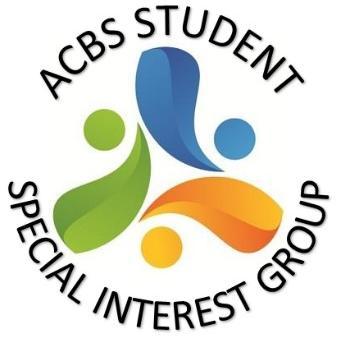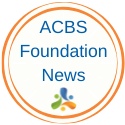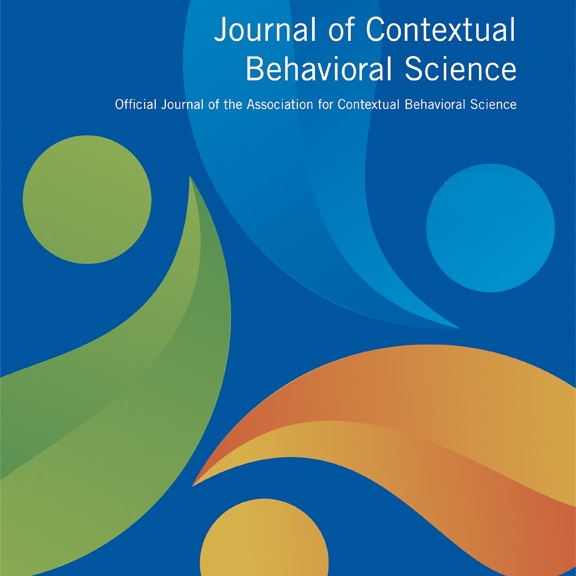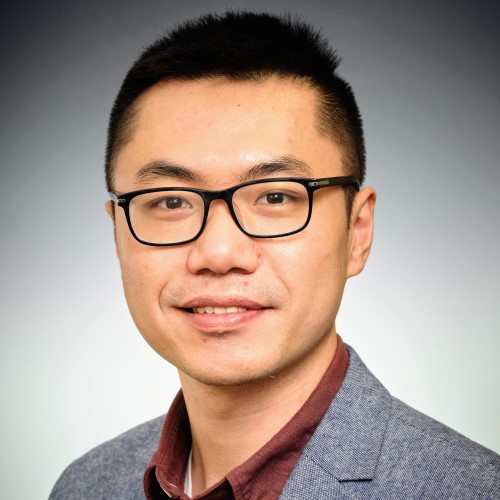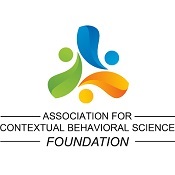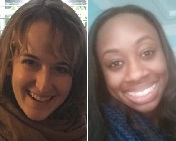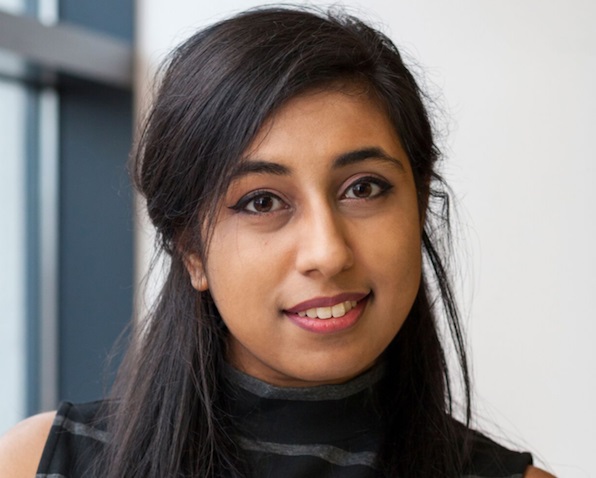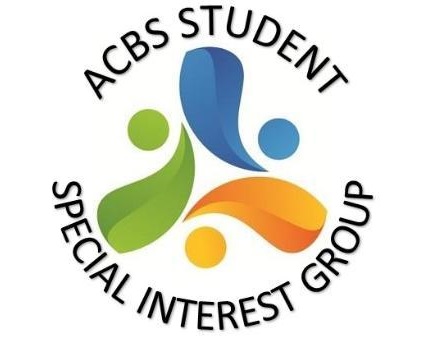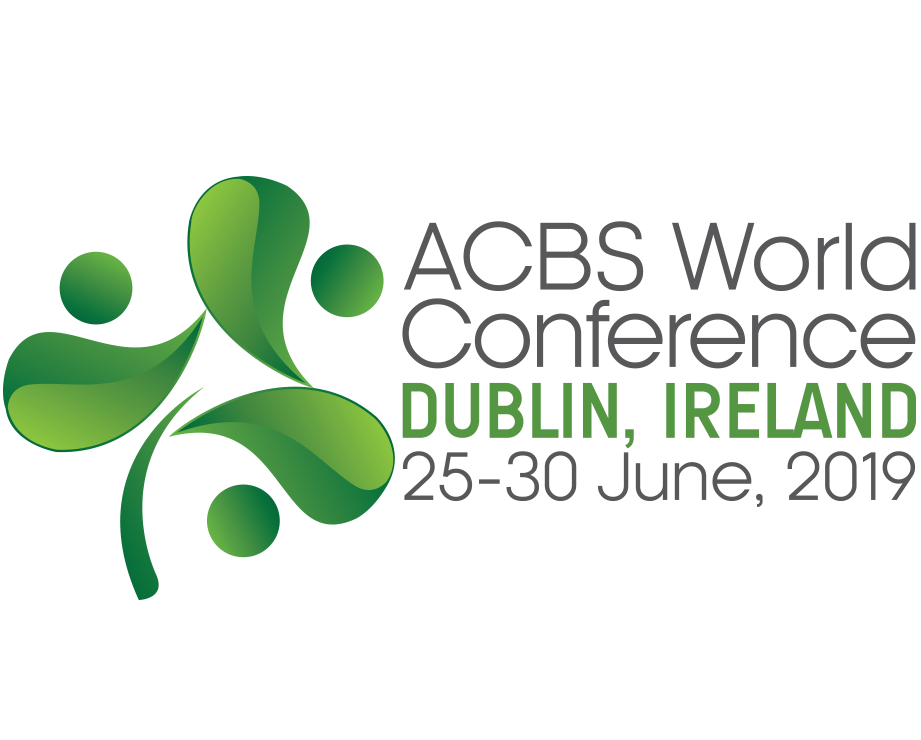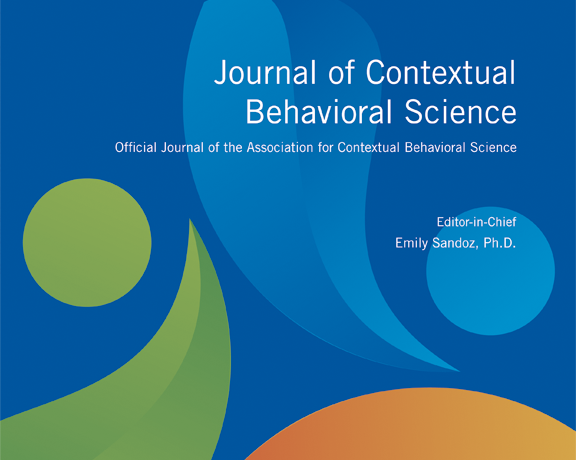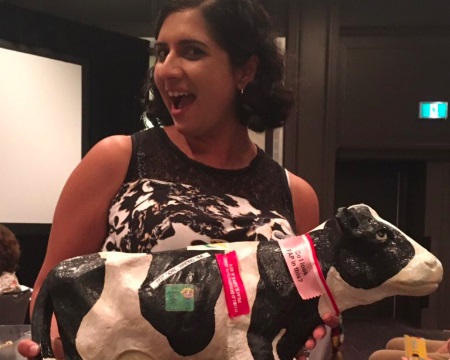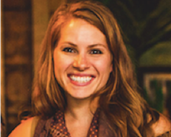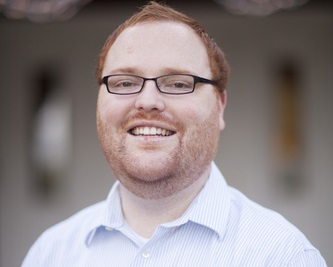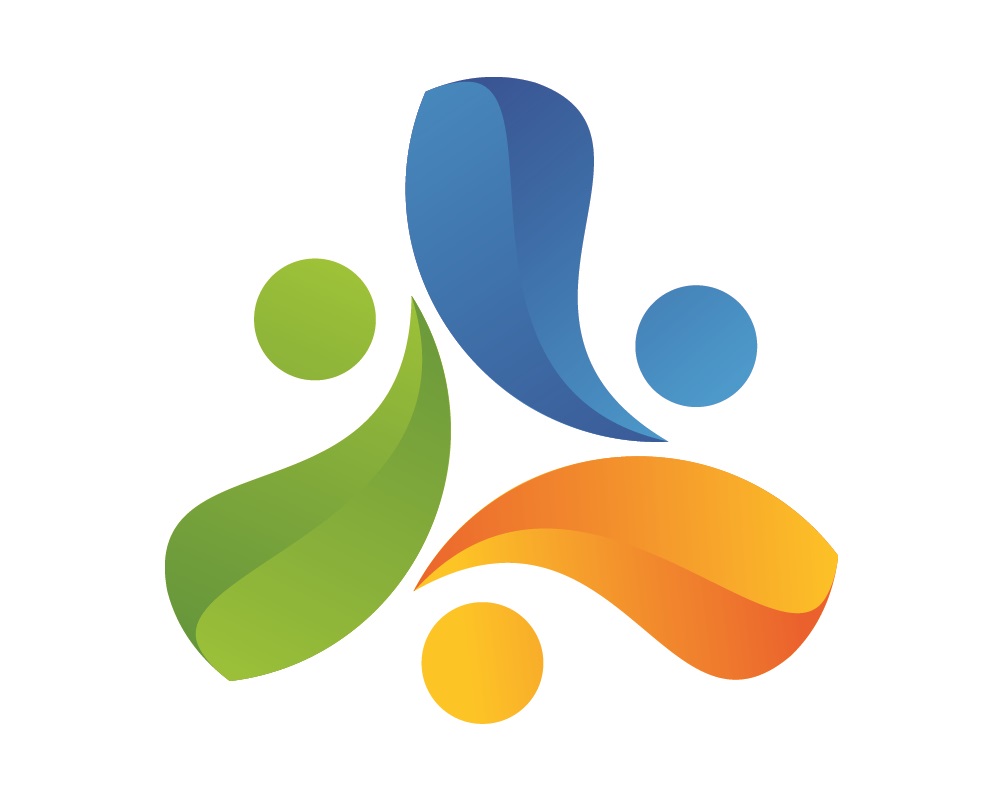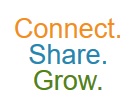ACBS Student Special Interest Group (SIG)
ACBS Student Special Interest Group (SIG)Affiliated since 2009
The ACBS Student SIG is a global community for students interested in Contextual Behavioral Science (CBS). We support students’ professional development, connection, and engagement within ACBS and the broader CBS community.
Get Connected
When you join the Student SIG, you are:
- Added as an official Student SIG member
- Subscribed to the Student SIG email listserv
- Subscribed to the Quarterly Student Newsletter
The listserv is the primary way we share:
- Job openings and training opportunities
- Grants, scholarships, and funding announcements
- Student SIG events, webinars, and calls for involvement
Listserv updates are delivered as a daily digest by default, and email preferences can be updated at any time.
Student Resources (Start Here)
The Student SIG curates resources specifically for student members in one place.
Explore upcoming events, webinars, ways to get involved, and more!
Visit the Student Resource Hub
(This is the best place to find the most up-to-date opportunities and announcements!)
Monthly Student Webinar Series
The Student SIG hosts a monthly webinar series on the first Thursday of every month. These webinars feature student presenters across the CBS community and are designed to support learning, connection, and professional growth.
Registration details and reminders are shared via the listserv and on the ACBS events calendar.
View Upcoming Webinars and Register!
Mission and Objectives
The ACBS Student SIG works to support students of contextual behavioral science by:
- Advocating for students’ professional and personal development
- Facilitating student contributions to ACBS and the larger CBS community
- Creating opportunities for connection, leadership, and collaboration
Who Can Join
Membership is open to students in fields related to contextual behavioral science, including research, clinical practice, education, and applied settings.
Student SIG Activities
- Student SIG listserv (jobs, grants, scholarships, events, and announcements)
- Annual Student SIG meeting at the ACBS World Conference
- Monthly Student SIG webinar series (first Thursday of each month)
- Student Spotlight Program
- Opportunities for leadership and service within ACBS
Get involved
Interested in volunteering or serving on a Student SIG committee? Volunteer with the Student SIG!
Current Student Representative:
Brendan Skinner, Western Michigan University, USA
ACBS Student Spotlight Program
ACBS Student Spotlight Program Anonymous (not verified)Funding Opportunities for Students
Funding Opportunities for StudentsAwards and Scholarships
- Michael J. Asher Student Dissertation Award
- DEI World Conference Scholarship
- Student World Conference Scholarship
- ACBS Foundation Student Scholarship
- Student Spotlight Program
Grants
Student SIG Newsletters
Student SIG Newsletters2023 Student SIG Newsletter
2023 Student SIG Newsletter|
Student Newsletter - November 2023 |
|||
ACBS Student Special Interest Group |
|||
Greetings from the ACBS Student SIG!
With over 1,500 ACBS student members worldwide, we are showcasing the ways that students can participate in ACBS, such as applying for scholarships to the annual World Conference, and, of course, joining the ACBS Student Special Interest Group. The ACBS Student SIG maintains a list of funding opportunities for students, sponsors the Student Spotlight Program, and hosts webinars. We encourage you to read more about the Student SIG and to join the ACBS Student SIG today. The ACBS Student SIG has multiple ways to stay in touch! We encourage students to join the conversation on Instagram, Facebook, X/Twitter, and the ACBS Student email listserv, so that you can stay informed about what the SIG is doing throughout the year. |
|||
Student Spotlight Award Application Deadline is November 30, 2023The Student Spotlight Program highlights students' work in the CBS community, whether through research, clinical, or volunteer-humanitarian efforts. This program is a great way to celebrate their achievements and let the entire ACBS community know about valuable work students are doing. The spotlighted students will receive a 50% discount off the ACBS World Conference student registration fee. The application deadline is November 30, 2023. Apply here. |
|||
ACBS World Conference |
|||
Register Your Interest in the 2024 ACBS World Conference
ACBS World Conference |
|||
Conference Awards and Scholarships- Scholarships: Diversity, Equity, and Inclusion World Conference Scholarship; Student World Conference Scholarship; ACBS Foundation Student Scholarship; and Developing Nations World Conference Scholarship |
|||
ACBS Foundation |
|||
ACBS Foundation Grant
The aim of the ACBS Foundation Grant is to finance projects and research that advances the understanding of how CBS principles can be used to impact social or environmental issues (these projects are funded through the General Fund or the Aaron S. Luoma Fund for Global Equity); and the Robert J. Kohlenberg Research Award will support graduate student and early career research focused on advancing knowledge and expertise in Functional Analytic Psychotherapy. The Foundation Grant application will open on January 15, 2024. Learn more. |
|||
ACBS Foundation Student ScholarshipThe ACBS Foundation coordinates the awarding of student scholarships to attend and learn cutting-edge information about contextual science at the ACBS World Conference. The scholarship will cover the full student conference registration fee. Nominees must be student members of ACBS in good standing and currently enrolled as a student in an undergraduate or graduate program. The application deadline is February 15, 2024. Apply here. |
|||
Journal of Contextual Behavioral Science |
|||
ACBS Members Can Read Journal Articles for Free
ACBS members can read the Journal of Contextual Behavioral Science for free. JCBS publishes four volumes each year. JCBS also has published special issues: such as "Conceptual Developments in Relational Frame Theory: Research and Practice," "ACT for Autism and Related Disorders"," and "Contextual Behavioral Science and the Psychedelic Renaissance." ACBS members can read the current Volume 30, past Volumes 1-29, and the special issues in the JCBS member portal. |
|||
Connect, Share, and Grow |
|||
ACBS Chapters, Affiliates, and Special Interest Groups
A great way for students to get involved in ACBS is to join a Chapter, Affiliate, or Special Interest Group (SIG). ACBS has Chapters and Affiliates located worldwide. If you are interested in a specific topic, then we encourage you to join one of our Special Interest Groups. Each SIG has a list of resources and most SIGs have an email listserv and social media that you can join. Chapters, Affiliates, and SIGs host meetings, webinars, and peer consultation groups throughout the year. Click here to view upcoming Chapter, Affiliate, and SIG events. |
|||
CBS SuperlabThe CBS Superlab is an international research lab meeting held once a quarter via Zoom. These hour-long meetings will involve a research presentation delivered by a CBS lab that showcases ongoing advances, developments, and innovations in the field of CBS and a group discussion among the attendees. All ACBS members are invited to attend the CBS Superlab events. The next Superlab with Carmen Luciano will be held January 17, 2024. Learn more about the CBS Superlab. |
|||
Post-Doc FellowshipsDid you know that ACBS allows its members to post information about their institutions' CBS-friendly Post-Doctoral Fellowships and Pre-Doctoral Internships? You can see the full list of internships and fellowships on the ACBS website. If you know of a CBS-friendly fellowship or internship, please email the information to [email protected]. |
|||
Submit Your Dissertations to Be Added on the ACBS WebsiteDo you have a CBS dissertation? Then please email your dissertation and citation to [email protected] and we will add it in the list of publications on the ACBS website. We know you put a lot of work into your dissertation, so we encourage you to share your dissertation so that other ACBS members may read it! |
|||
|
   |
|||
2021 Student SIG Newsletter
2021 Student SIG Newsletter|
Student Newsletter - November 2021 |
|||
ACBS Student Special Interest Group |
|||
Greetings from the ACBS Student SIG!
With over 1,900 ACBS student members worldwide, we are showcasing the ways that students can participate in ACBS, such as attending webinars, applying for scholarships to the annual World Conference, and, of course, joining the Student SIG. ACBS has a Student Special Interest Group (SIG) for our student members to join. The Student SIG hosts webinars, maintains a list of funding opportunities for students, and sponsors the Student Spotlight Program. We encourage you to read more about the Student SIG and to join the ACBS Student SIG today. The ACBS Student SIG has three different ways to stay in touch! We encourage students to join the conversation on Facebook, Twitter, and the ACBS Student listserv, so that you can stay informed about what the SIG is doing throughout the year. The 2021-22 Student SIG leaders are the Student Representative to the ACBS Board of Directors, Marianna Zacharia, University of Cyprus, and the Student SIG Co-Chair, Lam Ching Yee, The Hong Kong Polytechnic University. Thank you Marianna and Lam for volunteering for ACBS! |
|||
Student Spotlight Award Application Deadline is November 30, 2021The Student Spotlight Program highlights students who are doing important work in the CBS community, whether through research, clinical, or volunteer-humanitarian efforts. This program is a great way to celebrate their achievements and let the entire ACBS community know about valuable work students are doing. The spotlighted students will receive a 50% discount off the ACBS World Conference student registration fee. The application deadline is November 30, 2021. Apply here. |
|||
Be a Reviewer for the Student SIG Awards CommitteeWe are currently seeking motivated students to review the awards for the ACBS Student SIG. This would require a time commitment of approximately one hour in the fall semester and spring semester. You would be asked to review a small number of award submissions and grade them based on a rubric. This is also a cool CV line and an additive service to ACBS. Please email [email protected] to express interest. |
|||
Student SIG WebinarsIn 2021, the Student SIG hosted 2 webinars: In The Room Where It Happens - Introduction to Functional Analytic Psychotherapy (FAP) and Student Spotlight Award Video Series. Since 2015, the Student SIG has sponsored 17 webinars on ACT, RFT, FAP, and Prosocial. We record the Student SIG webinars so that students may watch the webinars at anytime. You can view the list of the 17 webinars on the Student SIG Resources webpage. |
|||
ACBS World Conference |
|||
Register Your Interest in the 2022 ACBS World Conference
ACBS World Conference 20 |
|||
Conference Awards and Scholarships- Scholarships: Diversity, Equity, and Inclusion World Conference Scholarship; Student World Conference Scholarship; ACBS Foundation Student Scholarship; and Developing Nations World Conference Scholarship |
|||
Journal of Contextual Behavioral Science |
|||
ACBS Members Can Read Journal Articles for Free
ACBS members can read the Journal of Contextual Behavioral Science for free. JCBS publishes four volumes each year. JCBS also has published special issues: such as "CBS Perspectives on COVID-19," "Conceptual Developments in Relational Frame Theory: Research and Practice," "ACT for Autism and Related Disorders"," and "Contextual Behavioral Science and the Psychedelic Renaissance." ACBS members can read the current Volume 22, past Volumes 1-21, and the special issues in the JCBS member portal. |
|||
Connect, Share, and Grow |
|||
ACBS Chapters, Affiliates, and Special Interest Groups
A great way to get involved in ACBS is to join a Chapter, Affiliate, or Special Interest Groups (SIGs). ACBS has 45 Chapters and 19 Affiliates located in 38 countries worldwide. If you are interested in a specific topic, then we encourage you to join one of our 42 SIGs. Each SIG has a list of resources and most SIGs have an email listserv or a Facebook group that you can join. Chapters, Affiliates, and SIGs host meetings, webinars, peer consultation groups, and congresses throughout the year. Click here to view upcoming Chapter, Affiliate, and SIG events. |
|||
CBS SuperlabThe CBS Superlab is an international research lab meeting held once a month via Zoom. These hour-long monthly meetings will involve a research presentation delivered by one student in a CBS lab that showcases ongoing advances, developments, and innovations in the field of CBS and a group discussion among the attendees. All ACBS members are invited to attend the CBS Superlab events. Learn more about the CBS Superlab. |
|||
Internships and Post-Doc FellowshipsDid you know that ACBS allows its members to post information about their institutions' CBS-friendly Pre-Doctoral Internships and Post-Doctoral Fellowships? You can see the full list of internships and fellowships on the ACBS website. If you know of a CBS-friendly internship or fellowship, please email the information to [email protected]. |
|||
Submit Your Dissertations to Be Added on the ACBS WebsiteDo you have a CBS dissertation? Then please email your dissertation and citation to [email protected] and we will add it in the list of publications on the ACBS website. We know you put a lot of work into your dissertation, so we encourage you to share your dissertation so that other ACBS members may read it! |
|||
Upcoming Deadlines |
|||
Interdisciplinary Science Capacity Building Seed Grant Application Deadline is December 1, 2021
ACBS has a new grant to promote and support ACBS researchers in developing high quality and competitive interdisciplinary grant proposals. This seed grant focuses on facilitating the early, formative stage of interdisciplinary grant proposal development. The support offered would be to help the principal investigator assemble a high-quality interdisciplinary team of investigators to support a competitive grant application. We encourage all independent investigators to apply, particularly junior investigators. Learn more and apply for the grant here. |
|||
Michael J. Asher Student Dissertation Awards Application Deadline is February 1, 2022The Awards Committee will open the Michael J. Asher Student Dissertation Awards application on December 1. The Michael J. Asher Awards will be given to two students based on their doctoral dissertation proposals related to the use of Contextual Behavioral Science with children/adolescents. Accompanying this honor will be two monetary awards of $750.00 USD to be used in support of research and/or to facilitate travel to the ACBS World Conference. The application deadline is February 1, 2022. Read more. |
|||
In Case You Missed It . . . |
|||
Acceptance and Commitment Therapy exceeds 800 Randomized Controlled Trials
The milestone of 800 Randomized Controlled Trials represents the culmination of more than 30 years of Acceptance and Commitment Therapy research. The ACBS Communications Committee maintains the list of RCTs on the ACT Randomized Controlled Trials webpage. It is a great resource with information about each study's trial area, trial conditions, and sample size, plus a link to the full text of each study. |
|||
World Health Organization recommends ACT for the management of chronic pain in childrenThe World Health Organization (WHO) published its “Guidelines on the management of chronic pain in children.” The WHO guidelines contain exciting news for Acceptance and Commitment Therapy researchers and practitioners: ACT is specifically recommended for use. The guidelines state there is “moderate certainty evidence" in support of ACT in improving functional disability. Read more. The State of ACT Evidence webpage has the full list of organizations that describe ACT, or areas of ACT, as evidence based. |
|||
2020 Student SIG Newsletter
2020 Student SIG Newsletter|
Student Newsletter - November 2020 |
|||
ACBS Student Special Interest Group
Welcome to the ACBS Student Newsletter! With almost 1,900 ACBS student members worldwide, we are showcasing what the ACBS Student Special Interest Group (SIG) has to offer. There are many ways that students can participate in ACBS, such as attending webinars, applying for scholarships to the annual World Conference, or volunteering for Chapters. We encourage you to read more about the Student SIG on the ACBS website and to take this opportunity to The 2020-21 Student SIG leaders are the Student Representative to the ACBS Board of Directors, Lam Ching Yee (The Hong Kong Polytechnic University) and the Student SIG Co-Chair, Benjamin Ramos (University of Edinburgh, UK). Thank you Lam Ching Yee and Benjamin Ramos for volunteering for ACBS! The ACBS Student SIG has three different ways to stay in touch! You can follow us on Facebook and Twitter. The Student SIG also has an email listserv, on which ACBS members post information about webinars, workshops, scholarships, post-doctoral fellowships, job postings, and other resources and events relevant to students. We encourage you to join us on Facebook, Twitter, and the Student SIG listserv, so that you can stay informed about what our special interest group is doing throughout the year. |
|||
DEI SIG Webinars
We are pleased announce the Diversity, Equity, and Inclusion SIG, in partnership with the Asian Culture and CBS SIG, is hosting the webinar "Cultural Humility in Counseling and Clinical Supervision with Dr. Peitao Zhu" on December 5, 2020. Register here. This will be the DEI SIG's fifth webinar of 2020. We encourage you to watch the recordings of the previous webinars on the DEI SIG Resources webpage and check out the ACBS community calendar for upcoming ACBS Chapters and SIG events. |
|||
2021 ACBS World Conference
ACBS Virtual World Conference 19 - June 24-27, 2021 |
|||
Student Spotlight Award Application Deadline is November 28, 2020The Student Spotlight Program highlights students who are doing important work in the CBS community, whether through research, clinical, or volunteer-humanitarian efforts. This program is a great way to celebrate their achievements and let the entire ACBS community know about valuable work students are doing. The spotlighted students will receive a 30% discount off the ACBS World Conference student registration fee. The application deadline is November 28, 2020. Apply here. |
|||
Michael J. Asher Student Dissertation Awards Application Deadline is February 1, 2021The Awards Committee will open the Michael J. Asher Student Dissertation Awards application on December 1, 2020. The Michael J. Asher Awards will be given to two students based on their doctoral dissertation proposals related to the use of Contextual Behavioral Science with children/adolescents. Accompanying this honor will be two monetary awards of $750.00 USD to be used in support of research and/or to facilitate travel to the ACBS World Conference. Read more. |
|||
ACBS Foundation: Funding Opportunities for Students
- The ACBS Foundation Student Scholarship covers the full registration fee for two students to attend the ACBS World Conference. The application deadline is February 15th. Apply here. |
|||
ACBS Chapters and Special Interest Groups
A great way to get involved in ACBS is to join a local Chapter. ACBS has 44 Chapters located in 32 countries worldwide. Click here for the list of the ACBS Chapters. If you want to learn more about a specific topic, then we encourage you to check out the list of 40 Special Interest Groups (SIGs). Most SIGs have email listservs that you can join and a webpage containing SIG-related resources. Please submit the SIG membership form for each SIG that you interested in joining. Click here for the list of ACBS SIGs. |
|||
Internships and Post-Doc Fellowships on websiteDid you know that ACBS allows its members to post information about their institutions' CBS-friendly Pre-Doctoral Internships and Post-Doctoral Fellowships? You can see the full list of internships and fellowships on the ACBS website. If you know of a CBS-friendly internship or fellowship, please email the information to [email protected]. |
|||
Submit Your Dissertations to Be Added on the ACBS WebsiteDo you have a CBS dissertation? Then please email your dissertation and citation to [email protected] and we will add it in the list of publications on the ACBS website. We know you put a lot of work into your dissertation, so we encourage you to share your dissertation so that other ACBS members may read it! |
|||
ACBS Members can read the Journal of Contextual Behavioral Science for free
ACBS members can read the Journal of Contextual Behavioral Science for free. JCBS publishes four volumes each year. Recently, JCBS also had three special issues: CBS Perspectives on COVID-19; Interbehaviorism as Contextualism; and Contextual Behavioral Science and the Psychedelic Renaissance. ACBS members can read the current Volume 19, past Volumes 1-18, and the special issues for free in the JCBS member portal. |
|||
In case you missed it . . . |
|||
Acceptance and Commitment Therapy exceeds 400 Randomized Controlled Trials
September 2020: The milestone of 400 Randomized Controlled Trials represents the culmination of more than 30 years of Acceptance and Commitment Therapy research. The ACBS Communications Committee maintains the list of RCTs on the ACT Randomized Controlled Trials webpage. It is a great resource with information about each study's trial area, trial conditions, and sample size, plus a link to the full text of each study. |
|||
Student Committed Action Fuels Growth of ACBS Pennsylvania Chapter and Delaware Valley Affiliate
February 2020: The Pennsylvania Chapter and the Delaware Valley Affiliate in the Philadelphia region have benefitted greatly from the students volunteering for them. In return, volunteering for the chapter has given the students opportunities to further their research, leadership skills, and professional networks. Read more. |
|||
|
|||
 
|
|||
2019 Student SIG Newsletter
2019 Student SIG Newsletter|
Student Newsletter - Summer 2019 |
|||
Greetings from the Student SIG
Welcome to the ACBS Student Newsletter! With over 1,700 ACBS student members worldwide, we are showcasing what the ACBS Student Special Interest Group (SIG) has to offer and to highlight some of the interesting things that students are doing. There are many ways that students can participate in ACBS, such as watching Student SIG Webinars and applying for scholarships to the World Conference. We are excited to announce the new Student Representative to the ACBS Board of Directors, Varsha Eswara Murthy. Thank you to Sonia Singh for serving as the Student Representative and to Maureen Satyshur for serving as the Student SIG Co-Chair for the past year, you will be missed! The Student SIG will be electing a new Co-Chair soon, so stay tuned for the co-chair elections this summer. We hope you enjoy reading the Student Newsletter! |
|||
Interview with ACBS member Amanda Muñoz-MartínezWe love to learn about what the ACBS student members are doing. For our Summer 2019 student newsletter, we interviewed Amanda Muñoz-Martínez, a doctoral student in Clinical Psychology at the University of Nevada-Reno and currently an Intern in the Counseling and Mental Health Center at The University of Texas at Austin. |
|||
Graduate Student PublicationsWe are proud to showcase our students publishing their work and contributing to the literature of CBS. Congratulations to Orla Moran, a doctoral student at University College, Ireland, and Clarissa Ong, a graduate student at Utah State University, USA, for publishing articles about CBS in the Journal of Obsessive-Compulsive and Related Disorders and the Journal of Contextual Behavioral Science. You can read more about the articles here. |
|||
Student SIG Webinars
We are pleased about the return of the Student SIG Webinar Series this year. All of our webinars are recorded and can be found here. We had two webinars in the month of May, “What’s So Special about Behavior Analysis? A Chat with Emily Sandoz” and “Dreams Do Come True (With A Lot of Work): How Becca Epps Emerged From Amy ReBEKAH EPStein Murrell” with Dr. Amy Murrell. We hope to have more webinars in 2019. Stay tuned! |
|||
Internships and Post-Doc Fellowships on websiteDid you know that ACBS allows its members to post information about their institutions' CBS-friendly Pre-Doctoral Internships and Post-Doctoral Fellowships. You can see the full list of internships and fellowships on the ACBS website. If you know of a CBS-friendly internship or fellowship, please email the information to [email protected]. |
|||
Submit Your Dissertations to Be Put on the ACBS WebsiteDo you have a CBS dissertation? Then please email your dissertation and citation to [email protected] and we will post it in the list of publications on the ACBS website. We know you put a lot of work into your dissertation, so we encourage you to share your dissertation so that other ACBS members may read it! |
|||
Stay in Touch with Facebook, Twitter, and the ListservThe Student Special Interest Group (SIG) has four different ways to stay in touch! You can follow us on Facebook, Twitter, and the Student SIG listserv. We have also re-vamped our blog. You can visit the Student SIG blog here. With these you can stay informed about what the ACBS Student SIG is doing throughout the year. |
|||
Student SIG Meeting at the ACBS Annual World Conference: Thursday 27 June at 12:45
The Student SIG will have our annual meeting on Thursday 27 June at 12:45 in Room QG15 in the Business School. We will discuss the progress of the SIG, upcoming projects, and goals that students would like to see accomplished within the organization. We will also spend some time getting to know each other in an informal setting. All are welcome to attend this event. (The Student SIG Meeting will be led by Student Representative Varsha Eswara Murthy.) ACBS World Conference Sessions of Interest to Students- "Rookies Retreat: First ACBS Conference" Wednesday at 18:00 in the Blue Room in The Helix. Join Jessica Borushok & Kori Schagunn as they welcome you to your first (or one of your first) ACBS World Conferences. They’ll give you a little information about the conference, and do some icebreakers. 2019 Awards and ScholarshipsWe are excited to announce that several ACBS Student SIG Members received awards and scholarships at the ACBS World Conference 17 in Dublin, Ireland. Click here to view the complete list of scholarship and award recipients. Download the Conference AppInstructions for installing the ACBS Conference App: (1)Go to your phone’s app store. Search for Yapp. Install Yapp on your phone. (2)Open Yapp. (3) Click on “+”at the top. (4)Type ACBS in the box that says Enter Yapp Id and click Add. (5)The ACBS World Conference logo will appear on your screen. Click on the logo and the app will open. |
|||
ACT in Context Podcast
The ACT in Context Podcast is freely available to anyone. This podcast will primarily focus on ACT, but it will often touch upon several related issues such as behavioral principles, the underlying theory of language (Relational Frame Theory) and philosophy of science. You can listen to the podcast on the ACBS website. |
|||
ACBS Members can read the JCBS for free
ACBS members can read the Journal of Contextual Behavioral Science for free. The JCBS releases four volumes per year. Recently, the JCBS released 2 special issues: ACT for Autism and Related Disorders and ACT Process Measurement. ACBS members can read these papers for in the JCBS member portal. |
|||
|
|||
 
|
|||
|
If this link does not work for you, email your unsubscribe request to [email protected] ACBS{domain.address} |
|||
Graduate Student Publications
Graduate Student PublicationsWe are proud to display the great work our students are doing by contributing to meaningful science. Orla Moran is earning her PhD in Psychology at University College, Dublin in Dublin, Ireland and recently published this meaningful paper examining the contributions of self-as- distinction and self-as-hierarchy on relevant mental health variables. Clarissa Ong is a graduate student in the combined Clinical/Counseling PhD program at Utah State University. She has recently published a study utilizing ACT vs. waitlist control to treat clinical perfectionism. All of our students work extremely hard to publish, present, and disseminate their research and we are pleased to feature some of their articles below:
Moran, O., & McHugh, L. (2019). Patterns of relational responding and a healthy self in older adolescents. Journal of Contextual Behavioral Science, doi:10.1016/j.jcbs.2019.02.002
Evidence from Contextual Behavioral Science indicates that two patterns of relating facilitate a sense of self, namely, self-as-distinction and self-as-hierarchy. Although the latter has been associated with better mental health outcomes relative to self-as-distinction, to date these types of relating have not been examined directly at a baseline level, wherein manipulation has not occurred. The present study examined the relative contribution of self-as-distinction and self-as- hierarchy on depression, stress, and anxiety in a sample of 102 young people, while controlling for deictic ability and gender. The role of psychological flexibility was also examined using mediation analysis. While self-as-hierarchy emerged as a significant predictor of lower levels of stress and depression, psychological flexibility was not found to mediate this relationship. Self- as-distinction did not emerge as a significant predictor of any outcome variable. Suggestions for future research on the basis of these findings are discussed. https://www.sciencedirect.com/science/article/pii/S2212144718302539
Ong, C. W., Lee, E. B., Krafft, J., Terry, C. L., Barrett, T. S., Levin, M. E., & Twohig, M. P. (2019). A randomized controlled trial of acceptance and commitment therapy for clinical perfectionism. Journal of Obsessive-Compulsive and Related Disorders.
Clinical perfectionism is characterized by imposing excessively high standards on oneself and experiencing severe distress when standards are not met. It has been found to contribute to the development and maintenance of various clinical presentations including anxiety, obsessive- compulsive, and eating disorders. The present study tested the efficacy of ten weekly individual sessions of acceptance and commitment therapy (ACT) relative to a waitlist control on clinical perfectionism and global outcomes among 53 individuals with clinical perfectionism. ACT is a process-based therapy that targets maladaptive underlying processes (e.g., rigid adherence to unrealistic high standards) rather than symptom topography (e.g., anxiety, depression). Participants completed assessments at pretreatment, posttreatment, and one-month follow-up. Results indicated compared to the waitlist condition, the ACT condition led to greater improvements in clinical perfectionism as well as outcomes related to wellbeing, functional impairment, distress, and processes of change. Our study suggests targeting core dysfunctional processes (i.e., clinical perfectionism) rather than symptom topography with treatments like ACT is feasible and efficacious, supporting a shift from symptom-focused to process-based care. We also note potential weaknesses in our treatment protocol and study methodology that should be addressed in future research. Study limitations included a small sample size and high dropout rate (35.7%). https://www.sciencedirect.com/science/article/pii/S2211364919300120?dgcid=rss_sd_all
Interview with ACBS member Amanda Muñoz-Martínez.
Interview with ACBS member Amanda Muñoz-Martínez.Who are you?
My name is Amanda Muñoz-Martínez. I’m currently doing my clinical internship in the Counseling and Mental Health Center at The University of Texas at Austin. I’m also a last year student in the doctoral Program in Clinical Psychology at the University of Nevada-Reno.
I identify as a Latina woman from Colombia. My identity as woman has been particularly important over my life. I have had extraordinary women mentors, starting with mom. To honor her, I decided keeping her last name (Martínez). So, when people ask me about my two last names, I always have the opportunity of describing the role of my mom in my life and other important women.
What got you started in the field?
I have been always fascinated by people’s behavior. I remember myself reflecting on why people make decisions even though these might lead them to a negative end. Coming from Colombia, a developing country, where social problems abound, I remember discussing in our family reunions the social inequalities with which we had to deal, and during out reunions we would end up saying “that is what we have and it is never going to change.” However, I never could accept that our situation couldn’t change because I witnessed how my parents were able to change the course of their life by working hard pursuing their goals. They both came from rural areas where the violence and the political corruption took the wealth of their families away, requiring that they migrate with their hands empty to the big city to start a new life. I remember seeing the effort they put to make our life conditions better. I remember thinking to myself, if my parents were able to change their lives, maybe I could help to change another people’s life for better.
My parents’ example also fostered in me a unique sense of responsibility. They always encouraged me to observe the circumstances that led me to behave in different ways and take responsibility for the consequences of my actions without blaming myself or others. They cultivated in me a sense of mutual responsibility by identifying the relation between individuals’ behaviors and their contexts.
Growing up in this environment planted the initial seeds for my interest in understanding individuals’ behavior and helping others to achieve a meaningful life, which inevitably led me to study psychology. During my undergraduate years, I was attracted to behavioral psychology because the core assumptions of this perspective fit nicely with the values I was taught at home and provided me with a rationale that strengthens my belief that people can change under the appropriate circumstances. Later, on my master’s in clinical psychology, I got in touch with verbal behavior and relational frame theory. I was encouraged by my mentors to analyze and explain the behavior of typically developed individuals based on contextual behavioral approaches. This process was open-eyed, I discovered the role of rules and poor socio-verbal communities in the acquisition and maintenance of psychological problems while learn to implement process-based interventions such as FAP, ACT, and behavioral activation to aid clients’ functioning better in their world.
How did you get connected to the ACBS community?
I’m coming from a master’s program with a strong emphasis on the relationship between philosophical principles and clinical practice. While I was in my master’s at the Pontificia Universidad Javeriana (Bogota, Colombia), my mentors Monica Novoa-Gómez Ph.D and Blanca P. Ballesteros, M.S. invited me to a study group in contextual behavioral science. At my first year, I studied the basic principles of relational frame theory and their relationship with Acceptance and Commitment Therapy (ACT). In my second year, Monica recommended me to read the first published book of Functional Analytic Psychotherapy (FAP). She believed I would feel fascinated by their approach to the therapeutic relationship and its emphasis in the present moment. She was right! After reading the first three chapters of this book, I was in love with FAP. I wanted to know everything about its principles and applications. This led me to contact Mavis Tsai Ph.D., who was my first contact with the English-speaking community in the ACBS. Mavis was strongly supportive and encouraging. She recommended me to contact Jonathan Kanter Ph.D. for conducting a training in FAP and Behavioral Activation in Bogota. Jonathan’s visit to Bogota was enlightened; he provided me with tons of information on FAP and other contextual behavioral science. He also recommended me to participate in the ACBS so that I would connect with other contextual scientists. All of them have supported me in a way or another to be a member of the ACBS community.
How has the ACBS community supported you as a student?
The ACBS community has allowed be to build strong connection with other colleges that are interested in the same areas than me. ACBS has provided an intellectually supportive environment. I have had the opportunity to think and design projects with other members as well as move construct a reliable source of knowledge.
What would you like to see from ACBS as we move forward in working to reduce suffering in the world?
One of the biggest factors associated with suffering is loneliness. I think that underrepresented communities within the ACBS get to feel lonely sometimes. Non-English speakers lack access to training and intervention materials or struggle with translating them with fidelity. Implementation and dissemination of contextual therapies have been limited by language and cultural validity, and as a consequence, they have not been fully utilized in these contexts. Promotion of conferences, seminars, and webinars in a foreign language could be food alternatives to overcoming the barriers of language while enhancing equity, multiculturalism, and accessibility in the ACBS. In addition, providing funding for full researchers and students that work with Non-English speaker’s population, it’s an important step to generate a global impact on psychological suffering.
Another area that requires more support to reduce suffering is translational research. Changes on criteria for validating interventions require a more in-depth analysis of the explanatory process of therapy. Improving knowledge on the mechanisms of change of treatment would aid effectiveness and efficiency by providing information on why, to whom, and under what conditions interventions work. Developing personalized interventions based on clinical science is the opportunity to start including clients underserved and underrepresent who have been ignored by the science of “normality.”
What are the most important values that you bring to your work?
“Connection” is one of my more critical values that permeates my life. Having a strong interpersonal connection has helped me to grow and flourish in my professional life. My dissertation would not be possible without my research team; we all support and learned together. Our connection allowed us to thrive, finding meaning and fun on difficult times. I have learned that good company makes your life better. In this path, I found that understanding, explaining, and providing opportunities to nurture connection is one of my passions. I want to explore this area in my work as a researcher and develop clinical tools for clinicians pursuing a similar path with their clients.
“Balance” is another principal value for me. I try the best as I can to be fair with myself and others. I have an incredible sense of justice. I believe that hard work requires a high dose of self-care. For years, I tended to put a lot of attention on my work and often found myself burnout. By the time I learned to place some weighs in the self-care side, I had become aware of other areas in my life that I wanted to pay attention and care such as family and friends. I discovered that productive work is the result of investing time on my job while taking care of other meaningful domains in my life. Often, I find myself thinking about how to satisfy I am with the way I’m distributing my daily activities. This ongoing self-reflection allowed me to redistribute my activities and even my balance.
What's next for you?
I will graduate from my program in May 2019. I will start a one-year position as a postdoc that will transition to an assistant professorship on the Fall, 2020 in the Universidad de Los Andes, Bogota, Colombia. I will start a research lab to study social competence and connection as well as process-based interventions. This lab will be based on CBS and will extend the knowledge in explanatory processes of interpersonal functioning while developing process-based interventions for enhancing people social competence.
Scholarship and Award Recipients
Scholarship and Award RecipientsMichael J. Asher Student Dissertation Award
- Self-compassion: Promoting resilience and well-being in adolescent populations – Madeleine Ferrari, The University of Sydney, Australia
Student World Conference Scholarships
- Kate Barrett, University College Dublin, Ireland
- Catriona Connelly, University College Dublin, Ireland
- Lauren Johnson, Drexel University, USA
- Stephen Richer, Bournemouth University, United Kingdom
- Eric Tifft, University at Albany, SUNY, USA
- Sérgio Andrade Carvalho, Portugal
- Lynn Farrell, Ireland
- Lauren B. Johnson, USA
- Ethan Lester, USA
- Raul Vaz Manzione, Brazil
- Amanda Rhodes, USA
Junior Investigator Poster Award
- How to act with narrative: A single case experimental design pilot study using a process-based psychotherapy informed by RFT- Daniel Wallsten, Thomas Parling, Ph.D., Ciara McEnteggart, Ph.D., Yvonne Barnes-Holmes, Ph.D., Colin Harte
- The Meta-Analytic Evidence of Acceptance and Commitment Therapy: A Review - Noemi Walder, BSc, Michael Levin, Ph.D., Michael Twohig, Ph.D., Maria Karekla, Ph.D., Andrew Gloster, Ph.D.
- Acceptance-based exposure and behavioral measurement: A case study of an elderly woman with obsessive compulsive disorder - Atsushi Seguchi, M.A.
- A mobile game for improving psychological flexibility skills in elementary school children - Katariina Keinonen, Anna-Lotta Lappalainen, M.S., Päivi Lappalainen, Ph.D., Raimo Lappalainen, Ph.D.
- Self-Compassion Moderates Hopelessness in Predicting Suicide Ideation Among People Living With HIV/AIDS - Lauren B. Johnson, M.Ed., M.S., C. Virginia O' Hayer, Ph.D., Chelsi Nurse, B.S.
- Assessing the efficacy of an ACT hybrid intervention for anxiety disorders and the added value of a weekly phone call: preliminary results from a randomized controlled trial - Lauriane Lapointe, Joel Gagnon, Guillaume Foldes-Busque, Ph.D., Nadia Gagnon, M.Ps., Frédérick Dionne, Ph.D.
Developing Nations World Conference Scholarships
- Meryem Laamouri, Morocco
- Dario Lipovac, Bosnia/Herzegovina
- Gabriel Sebastian Lizada, Philippines
- Khamisi Musanje, Uganda
Diversity World Conference Scholarships
- Lais Nicolodi, Brazil
- Taslim Tharani, United Kingdom
- Jan Topczewski, Poland
Women in ACBS SIG Scholarship
- Burcak Kapar, Türkiye
Student Rep. Varsha Eswara Murthy
Student Rep. Varsha Eswara Murthy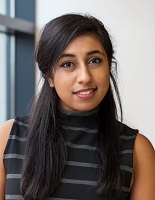
Varsha Eswara Murthy, University College Dublin (Ireland)
Student SIG Co-Chair and ACBS Board of Directors Student Representative
Varsha Eswara Murthy is a doctoral research student in University College Dublin (UCD). Varsha completed her undergraduate and master’s degrees at UCD, graduating top of her Masters of Psychological Science class. Varsha’s thesis focuses on developing and evaluating CBS interventions for marginalised populations, specifically those experiencing homelessness. With rising rates of homelessness and the resulting human suffering, the development of practicable and empirically validated interventions with a strong theoretical basis that will serve this population has been a goal of hers for some time. Alongside researching the development and efficacy of ACT interventions, Varsha has a background in basic science research and translating this research into applied contexts. She has published research in the area. Varsha has been a member of ACBS since 2015 and has presented her research at international conferences. Varsha hopes to continue researching and developing empirically supported CBS interventions for marginalised populations and the general public.
I am passionate about science communication, researching and translating basic science into applied practices. I will explore different avenues where students can highlight their research and get excited about basic science and its applications. I will put more robust formal supports in place that encourage members to communicate research within their communities, in academic and public contexts. My goal is to build supports for student members to collaborate on innovative research and to provide training by experts in the association. Working with marginalised populations, I am sensitive to the need to create safe and welcoming environments to people from diverse backgrounds. I will find new avenues to enhance the continued growth of a diverse student membership. I am confident that I can bring your ideas and concerns to the board, in order to enhance student involvement and help foster the development of the next generation of clinicians and scientists.
2018 Student SIG Newsletter
2018 Student SIG Newsletter|
ACBS Student NewsletterDecember 2018 |
|||
Greetings from the Student SIG Co-Chairs Sonia Singh and Maureen Satyshur
Welcome to the inaugural ACBS Student Newsletter! With over 1,700 ACBS student members worldwide, we decided to showcase what the ACBS Student Special Interest Group (SIG) has to offer and to highlight some of the interesting things that students are doing. There are many ways that students can participate in ACBS, such as the JCBS Student Editorial Board, scholarships to the World Conference, and being a reviewer for student awards. We hope you enjoy reading the Student Newsletter! - Sonia and Mo |
|||
Interview with ACBS member Kim Gushanas
We love to learn about what the ACBS student members are doing. For our inaugural student newsletter, we interviewed Kim Gushanas, a Doctoral Candidate in school psychology from the University of Texas at Austin and currently an Intern in Integrated Pediatric Psychology with the Texas Child Study Center at Dell Children's Hospital in Austin, Texas, USA. |
|||
Graduate Student Publications
We are proud to showcase our students publishing their work and contributing to the literature of CBS. Congratulations to Eric Lee, a 5th year student at Utah State University, and Leah Bogusch, a 4th year student at Bowling Green State University, for publishing articles about ACT in the journals Behavior Modification and Clinical Case Studies. You can read more about the artilces here. |
|||
Student Spotlight Award
The ACBS Student Spotlight Program highlights students who are doing important work in the CBS community, whether for research, clinical, and/or volunteer-humanitarian efforts. This program is a great way to highlight their achievements and let the ACBS community know about important work students are doing. The spotlighted students will get 30% off the ACBS World Conference student registration fee. Applications will be accepted from March 1, 2019 to March 29, 2019. |
|||
JCBS Student Editorial Board
The Journal of Contextual Behavioral Science plans to seat a Student Editorial Board (SEB), comprised of graduate students interested in CBS. Once appointed, SEB members will review JCBS articles, gaining invaluable experience in the peer-review process and helping to steer the content of JCBS. |
|||
Internships and Post-Doc Fellowships on website
Did you know that ACBS allows its members to post information about their institutions' CBS-friendly Pre-Doctoral Internships and Post-Doctoral Fellowships. You can see the full list of internships and fellowships on the ACBS website. If you know of a CBS-friendly internship or fellowship, please email the information to [email protected]. |
|||
Submit Your Dissertations to Be Put on the ACBS Website
Do you have a CBS dissertation? Then please email your dissertation and citation to [email protected] and we will post it in the list of publications on the ACBS website. We know you put a lot of work into your dissertation, so we encourage you to share your dissertation so that other ACBS members may read it! |
|||
Be a Reviewer for the ACBS Student SIG Awards Committee!
We are currently seeking motivated students to review the awards for the ACBS Student SIG. This would require a time commitment of approximately one hour in the fall semester and spring semester. You would be asked to review a small number of award submissions and grade them based on a rubric. This is also a cool CV line and additive service to ACBS and the Student SIG. Please email Sonia Singh at [email protected] to express interest. |
|||
ACBS Annual World Conference 17: Dublin, Ireland
25-30 June, 2019 |
|||
Call for SubmissionsWe are excited to invite you to join us in Dublin, Ireland for the 17th Annual World Conference of the Association for Contextual Behavioral Science (ACBS) 25-30 June, 2019. We are accepting submissions for symposia, papers, panels, workshops, Ignite sessions, and posters. Oral Presentation deadline is February 15, 2019. Poster deadline is March 20, 2019. Please click here for more information. |
|||
Scholarships to the ACBS World Conference are now open- Diversity Conference Scholarships - Deadline is February 1, 2019 |
|||
ACBS Junior Investigator Poster AwardThe purpose of this award is to recognize and help develop junior investigators conducting research in Contextual Behavioral Science and who are presenting the results of this research at the ACBS annual world conference. Eligible candidates for this award include undergraduates, graduate students, and post-doctoral fellows presenting first-authored posters at the annual world conference. To be considered for the award, please self-nominate by indicating your interest when you submit your poster for the ACBS World Conference. Read more about the award here. |
|||
Asher Dissertation Award: Application Deadline is February 1, 2019The Asher Dissertation Awards will be given to two students based on their doctoral dissertation proposal related to the use of Contextual Behavioral Science with children/adolescents. Accompanying this honor will be a monetary award of $750 USD and $250 USD to be used in support of research (e.g., to pay participants, to purchase testing equipment) and/or to facilitate travel to the ACBS annual conference. The deadline to apply is February 1, 2019. |
|||
Stay in Touch with Facebook, Twitter, and the Listserv
The Student Special Interest Group (SIG) has three different ways to stay in touch! You can follow us on Facebook, Twitter, and the Student SIG listserv. These are three fun ways to stay informed about what the ACBS Student SIG is doing throughout the year. |
|||
Graduate Student Publications
Graduate Student PublicationsEric Lee is a 5th year student at Utah State University working with Mike Twohig. This study is a randomized controlled trial utilizing a 10-session standalone ACT protocol for trichotillomania. This study provides evidence that ACT alone is an effective treatment for people with trichotillomania.
Lee, E. B., Homan, K. J., Morrison, K. L., Ong, C. W., Levin, M. E., & Twohig, M. P. (2018). Acceptance and commitment therapy for trichotillomania: A randomized controlled trial of adults and adolescents. Behavior modification, 0145445518794366.
Abstract
The purpose of this study was to examine acceptance and commitment therapy (ACT) as a standalone treatment for trichotillomania in a randomized controlled trial of adults and adolescents. Participants consisted of a community sample of treatment seeking adults and adolescents with trichotillomania. Of the eligible 39 participants randomized into treatment and waitlist groups, 25 completed treatment and were included in the final analysis. Treatment consisted of a 10-session ACT protocol. Multiple mixed models repeated measures analyses were utilized to evaluate changes in trichotillomania symptom severity, daily number of hairs pulled and urges experienced, and experiential avoidance from pretreatment to posttreatment. Findings indicated significant changes in symptom severity and daily hairs pulled, but not daily urges experienced or psychological flexibility. However, psychological flexibility saw a 24.5% decrease in the treatment group and reduced from clinical to subclinical levels on average. This study suggests that ACT alone is an effective treatment for adults and adolescents with trichotillomania. Outcomes appear to be similar to trials that combined ACT and habit reversal training (HRT).
Leah Bogusch is a 4th year student at Bowling Green State University. This study is a case study in which the authors utilize ACT as a treatment for a client with emetophobia (phobia of vomiting). The results indicate symptom improvement from pre-treatment, post-treatment, 6-month follow up, and 12-month follow up.
Bogusch, L. M., Moeller, M. T., & O’Brien, W. H. (2018). Case Study of Acceptance and Commitment Therapy and Functional Analysis for Emetophobia. Clinical Case Studies, 17(2), 77-90.
Abstract
Acceptance and Commitment Therapy (ACT) is a third-wave behavioral therapy that is an empirically supported treatment for various mental health concerns. ACT has been found to be efficacious for treating different types of anxiety disorders. This case study presents the conceptualization (functional analysis), treatment (ACT), and treatment outcomes of a client who presented with emetophobia, a phobia of vomiting, complicated by a metabolic disorder. Measures of emetophobia symptoms, mindfulness, cognitive fusion, thought control strategies, and believability of anxious thoughts and feelings, were collected at pretreatment, posttreatment, 6-month follow-up, and 12-month follow-up. The Reliable Change Index was used to evaluate changes across time. Large and clinically significant decreases on all measures were observed at posttreatment. At 12-month follow-up, improvements were maintained on all measures except the Reappraisal subscale of the Thought Control scale. The implications of this study are discussed, and recommendations are made for clinicians using ACT for the treatment of emetophobia.
Interview with ACBS member Kim Gushanas
Interview with ACBS member Kim Gushanas
Who are you?
Kim Gushanas, MA, Doctoral Candidate in school psychology from the University of Texas at Austin and currently an Intern in Integrated Pediatric Psychology with the Texas Child Study Center at Dell Children's Hospital in Austin, TX. When I was a child I desperately wanted to grow up to be a dolphin trainer... and in my first graduate school class, I knew I had made it when we read a book by Karen Pryor- a behavioral psychologist and former dolphin trainer!!
What got you started in the field?
I actually always knew I would be in the field somehow. From a very young age, I was fascinated by what made people who they are- I read books about different cultures, religions, foods, folklore, evolution... and then I took my first psychology class in high school and knew that I had found where I was meant to be. Something about giving people a space to tell (and retell) their story felt like home to me.
How did you get connected to the ACBS community?
I had an amazing graduate professor in my clinical master's program at the University of Houston Clear Lake- Dub Norwood. He decided one semester to start teaching us about ACT and it blew me away! I had some practice in mindfulness but hadn't yet learned anything that felt as honest and truthful to the human experience. It was very inspiring, and although I didn't understand half of what we were learning, it stuck with me.
How has the ACBS community supported you as a student?
As a professional, it's really been a resource for me throughout my training and now with my current research and dissertation. I have relied on the website often to brainstorm when I get stuck with a client or to seek consultation/supervision when I feel out of touch. There aren't many who practice within the ACBS community in Austin, so it's really important to have such a great resource to draw from. As an individual, I have grown so much through my study and practice. I have never felt more connected to others than when I am attending to my values. It has really shaped my life in incredible ways to take what I have learned and apply it to myself and my career.
What would you like to see from ACBS as we move forward in working to reduce suffering in the world?
There are two things... As a pediatric psychology student working in primary and integrated care settings, I would love to see more research focusing on brief interventions with trauma populations, especially youth and their families. In Texas, the majority of individuals I work with are first-generation Americans or immigrants who have suffered significant trauma throughout their short lives. And unfortunately, this population is growing. I think this is definitely an area of growth for our community.
Second, I am a member of the Women's SIG, and I have seen so much beautiful honesty and stretching of the limits in that group in the last year. The women there are using our collective voice to show up for each other, and to help remind those who are listening what it means to truly value another for who and what they are. I hope that we can use that strength to disseminate the same level of compassion in a way that is accessible and inclusive to everyone.
What are the most important values that you bring to your work?
Self-awareness as a clinician and trying to remember to check myself during and between sessions. Respect- for myself, my clients, my colleagues, my community, and really humanity as a whole- especially when our values don't align. Everyone deserves to be heard.
What's next for you?
First, finish collecting data for my dissertation- I am looking at the transmission of anxiety from parent to child by studying parental experiential avoidance as a mediator in the accommodation of children with OCD. If anyone knows of parents who are interested in participating- please send them my way for a screening: rebrand.ly/ocdstudy
Then, Post-Doc, hopefully in a position where I am able to focus on pediatric trauma, maladjustment, and anxiety in an integrated setting.
Student SIG Research Webinar Series
Student SIG Research Webinar Series
December 2025 - Presentation by Jennifer Truitt. You will find the recording here.
November 2025 - Presentions by Claire McCormick and Sanna Turakka. You will find the recording here.
October 2025 - Presentions by Abbey Warren & Ella Joyce. You will find the recording here.
Student SIG/Committee Fundraising
Student SIG/Committee FundraisingFunds collected via the Student SIG/Committee are used for scholarships to support attendance to the ACBS World Conference (registration/travel). Any support you can provide is greatly appreciated!
Please note that this contribution does not qualify as a tax-deductible charitable contribution, according to USA tax law ... but it's a nice thing to do.

